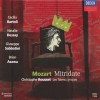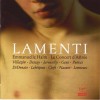| Voice/Instrument: | Coloratura soprano |
Biography
Natalie Dessay (born Nathalie Dessaix, 19 April 1965, in Lyon) is a French coloratura soprano. She dropped the "h" in her first name in honor of Natalie Wood when she was in grade school and subsequently simplified the spelling of her surname outside France.
In her youth, Dessay had intended to be a ballet dancer, and then an actress. She discovered her talent for singing whilst taking acting classes, and shifted her artistic focus to music. Dessay was encouraged to study voice at the Conservatoire national de région de Bordeaux and gained experience as a chorister in Toulouse. At the competition Les Voix Nouvelles, run by France Télécom, she was awarded First Prize (Premier Prix de Concours) followed by a year's study at Paris Opera's Ecole d'Art Lyrique, where she sang "Elisa" in Mozart's Il re pastore. Also, she entered the International Mozart Competition at the Vienna Staatsoper, winning First Prize.
She was quickly approached by a number of theatres, and subsequently sang "Blondchen", "Madame Herz" (in Der Schauspieldirektor), "Zerbinetta" and "Zaïde" at the Opéra National de Lyon and the Opéra Bastille, as well as "Adele" in Die Fledermaus in Geneva.
In April and May 1992 at the Opéra Bastille, she sang the role of "Olympia" in The Tales of Hoffmann with José van Dam. The Roman Polanski production was not well received, but it began the road to stardom for Dessay. Although she was soon featured in another production of Hoffmann, it would be over ten years before her return to Paris Opera in the same role. Soon after her Hoffmann run, Dessay joined the Vienna State Opera as Blondchen in The Abduction From The Seraglio by W. A. Mozart. In December 1993, she was then asked to replace Cheryl Studer in one of the three female roles in a production of Hoffmann at the Vienna Opera. Her "Olympia" received acclaim from the Vienna audiences and praise from Plácido Domingo.
She attended a performance where Barbara Bonney had sung Sophie in Richard Strauss' Der Rosenkavalier under Carlos Kleiber. Dessay was cast in the same role with another conductor. Her hope was to work with Maestro Kleiber, but he died before any project came to fruition. Blondchen in Die Entführung and Zerbinetta in Ariadne auf Naxos became her best-known and most often played roles.
In October 1994 Dessay made her Metropolitan Opera debut in New York in the role of Fiakermilli in Strauss's Arabella, and returned there in September 1997 as Zerbinetta and in February 1998 as Olympia.
The Staatsoper approached Dessay with two operas: Richard Strauss's Die schweigsame Frau and an unfinished opera by Alban Berg, Lulu. Dessay declined the latter, saying the score was too difficult for her. She admitted that Die schweigsame Frau was already painful to learn.
At the festival of Aix-en-Provence, Dessay first performed the role of the Queen of the Night in Mozart's The Magic Flute. Although she was hesitant to perform the role, saying that she didn't want to play any evil characters, director Robert Carsen convinced her that this Queen would be different, almost a sister to Pamina. Dessay agreed to do the role, claiming it would be a one-time series of performances. There followed a year-long series of final performances of the Queen of the Night.
During the 2001–2002 season in Vienna, she began to experience vocal difficulties and had to be replaced in almost all of the performances of La sonnambula. Subsequently, she was forced to cancel several other performances, including a French version of Lucia in Lyon and a Zerbinetta at the Royal Opera House in London. She withdrew from the stage and underwent surgery on one of her vocal cords in July 2002. In February 2003, she returned to live performances in a Paris concert. Later, she cancelled and had further surgery, but by mid-2005 she was back on stage.
In the summer of 2003, Dessay gave her first US recital in Santa Fe. She was so attracted to New Mexico in general, and to Santa Fe in particular, that Santa Fe Opera (SFO) quickly rearranged its schedule to feature her in SFO's 2004 production of La sonnambula.She returned in the 2006 SFO season as Pamina (The Magic Flute). She gave her first performances in the role of Violetta in La traviata at SFO on 3 July 2009 in a production staged by Laurent Pelly. Her husband, Laurent Naouri appeared as Germont.
The 2006/2007 season schedule included Lucia di Lammermoor and La sonnambula in Paris, La fille du régiment directed by Laurent Pelly in London and Vienna, and a Manon in Barcelona. She opened the 2007–08 season at the Met as Lucia and also repeated her role in La fille du regiment. In January 2009 she sang the part of Melisande in a much acclaimed stagione production of Pelleas et Melisande by Claude Debussy at "Theater an der Wien", the second opera house in Vienna, alongside Laurent Naouri. On 2 March 2009, Dessay sang the title role in La Sonnambula at the New York Metropolitan Opera. It was the first new production of the opera at the Met since Joan Sutherland sang the title role in the 1960s.
In other media, Dessay provided the singing voice for the character of Anna Sörensen (played by Diane Kruger) in the movie Joyeux Noël (2005).
Dessay is married to the bass-baritone Laurent Naouri, and they have two children.
Compositions
Discography
Composers' compositions
Charles Camille Saint-Saëns
Camille Saint-Saens Edition - CD21-24: Vocal and Choral music, operasVocal and instrumental music
Gustav Mahler
Mahler - Symphony No.2 in C Minor 'Resurrection' - Paavo JarviSymphony / Symphonic music








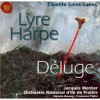
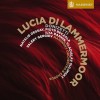
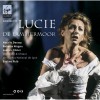

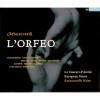
![Handel - Aci, Galatea e Polifemo [highlights] - Emmanuelle Haim](http://static.classicalm.com/repository/composition-cover/small/37641-img1575305315653250.jpg)
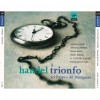
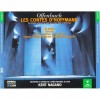
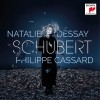




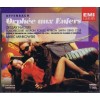



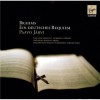
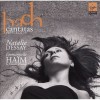
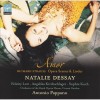
![Mozart - Die Zauberflote [Mannion, Dessay, Blochwitz - William Christie, 1995]](http://static.classicalm.com/repository/composition-cover/small/16760-img1381665622130929.jpg)
